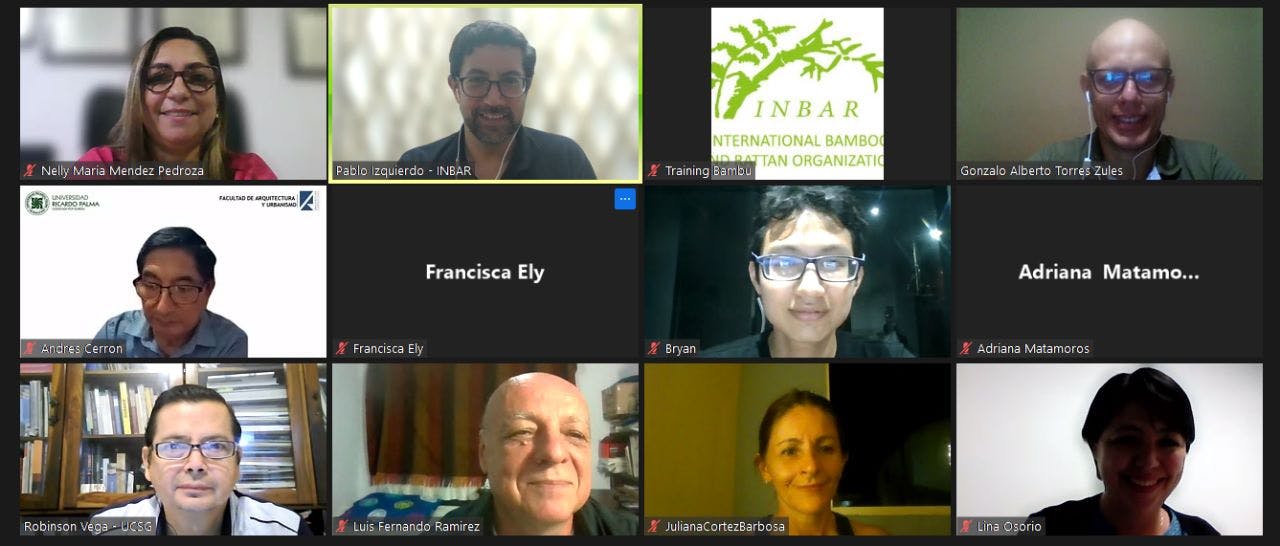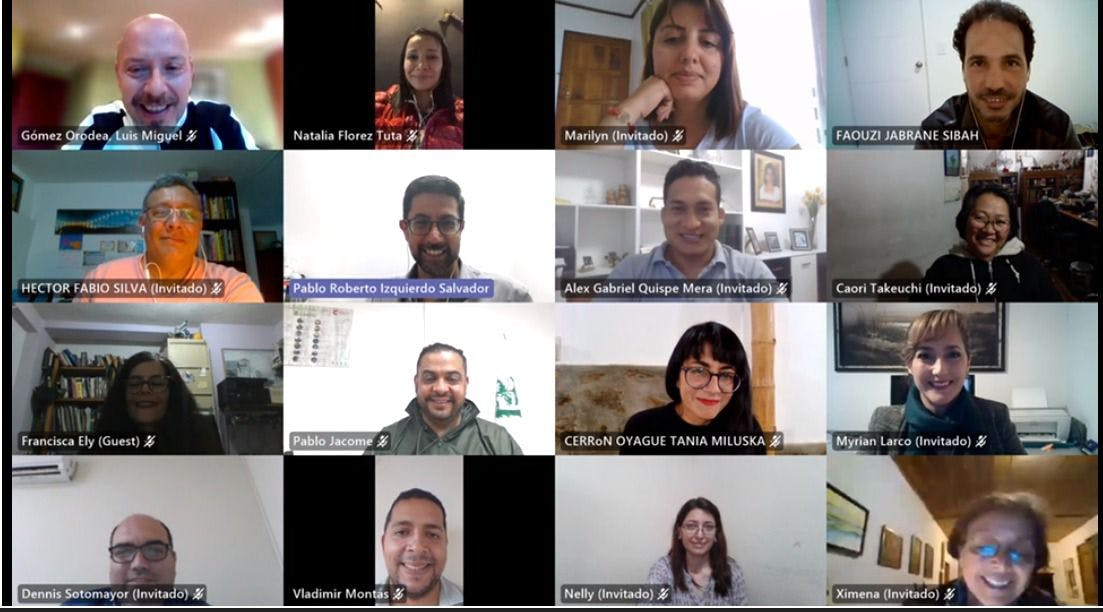RIUCI bamboo News
Knowledge Sharing for Bamboo goes Online

INBAR convened a series of webinars with the International Network of Universities and Research Centers (RIUCI bamboo) to share the latest advances in bamboo knowledge occurring in Latin America.
From February 22 to 24, the First Cycle of Webinars of RIUCI bamboo was held, an initiative launched within the framework of the project Support for Research, Development and Innovation and Higher Education in Sustainable Construction in Ecuador, financed by the Spanish Agency of International Cooperation for Development and implemented by INBAR.
The dialogue was held on the Facebook Live platform of INBAR’s Latin America and the Caribbean Office. In total, 16 exhibitors from Mexico, Costa Rica, Colombia, Venezuela, Ecuador, Peru and Brazil participated in the web event.
Among the topics reviewed were bamboo construction systems in social housing projects in Ecuador, Colombia and Peru, the production and use of bamboo charcoal in small rural properties, composite materials reinforced with bamboo fibers, the development of sustainable bamboo products with more added value to generate jobs and bolster incomes, along with other topics.
During the broadcast, several online users in attendance shared questions with the exhibitors, who were able to provide clear and succinct answers to their queries in real time. Over the three-day series of webinars, nearly 3000 views were reached.
Launch of RIUCI bamboo
On June 24, 2022, the International Network of Universities and Research Centers related to bamboo, RIUCI bamboo, was launched. This initiative is part of the Project "Support for research, development and innovation for sustainable construction in Ecuador" funded by the Spanish Agency for International Development Cooperation AECID. The Network promotes research on bamboo, the exchange between researchers, teachers and students and the dissemination of scientific information that contributes to the development of bamboo in different areas. The launching event was attended by 29 people from Colombia, Costa Rica, Ecuador, Peru and Venezuela.
